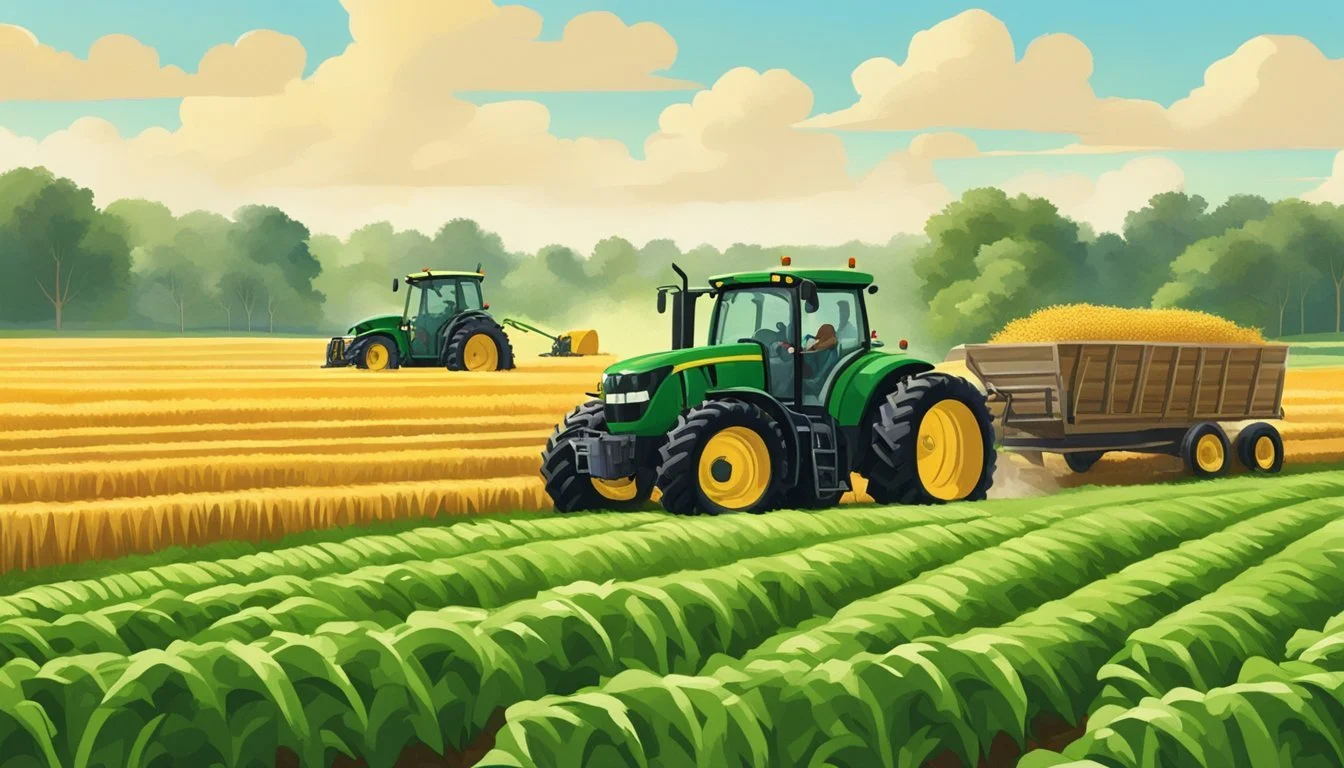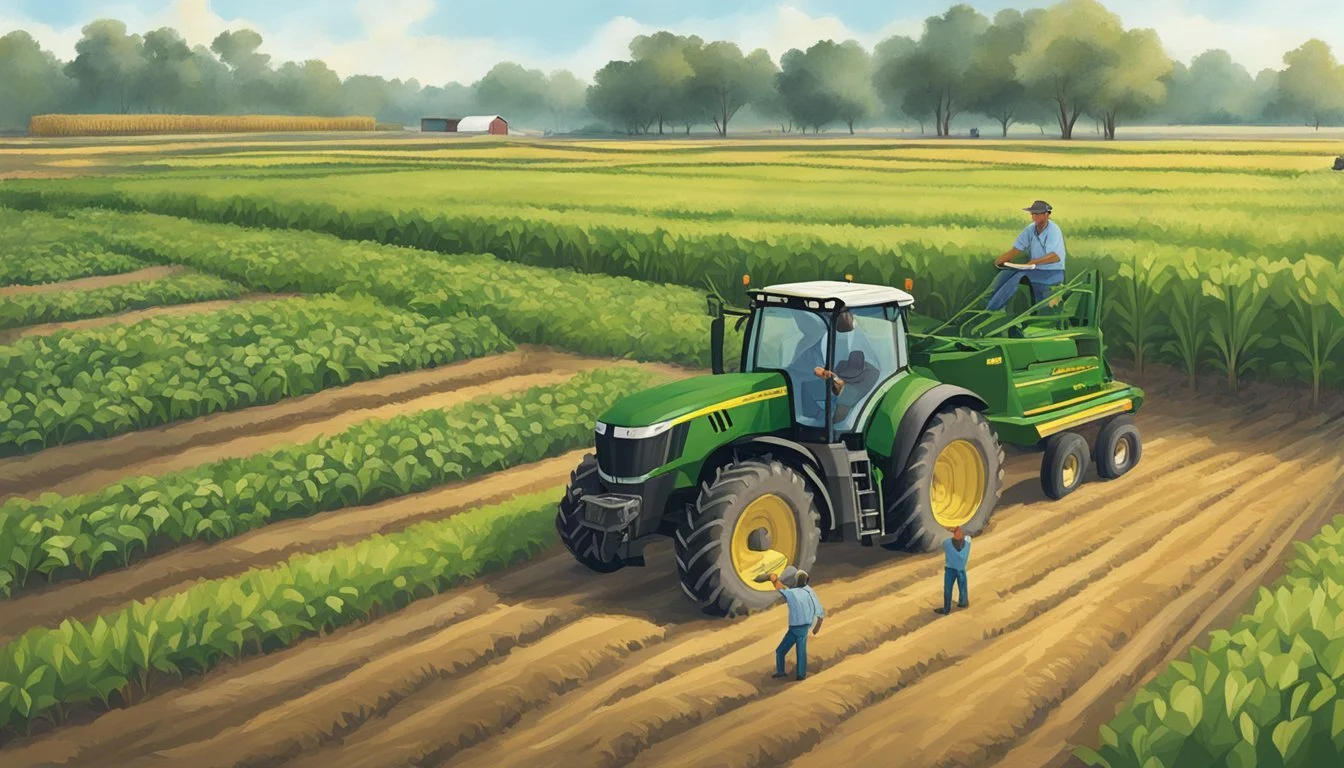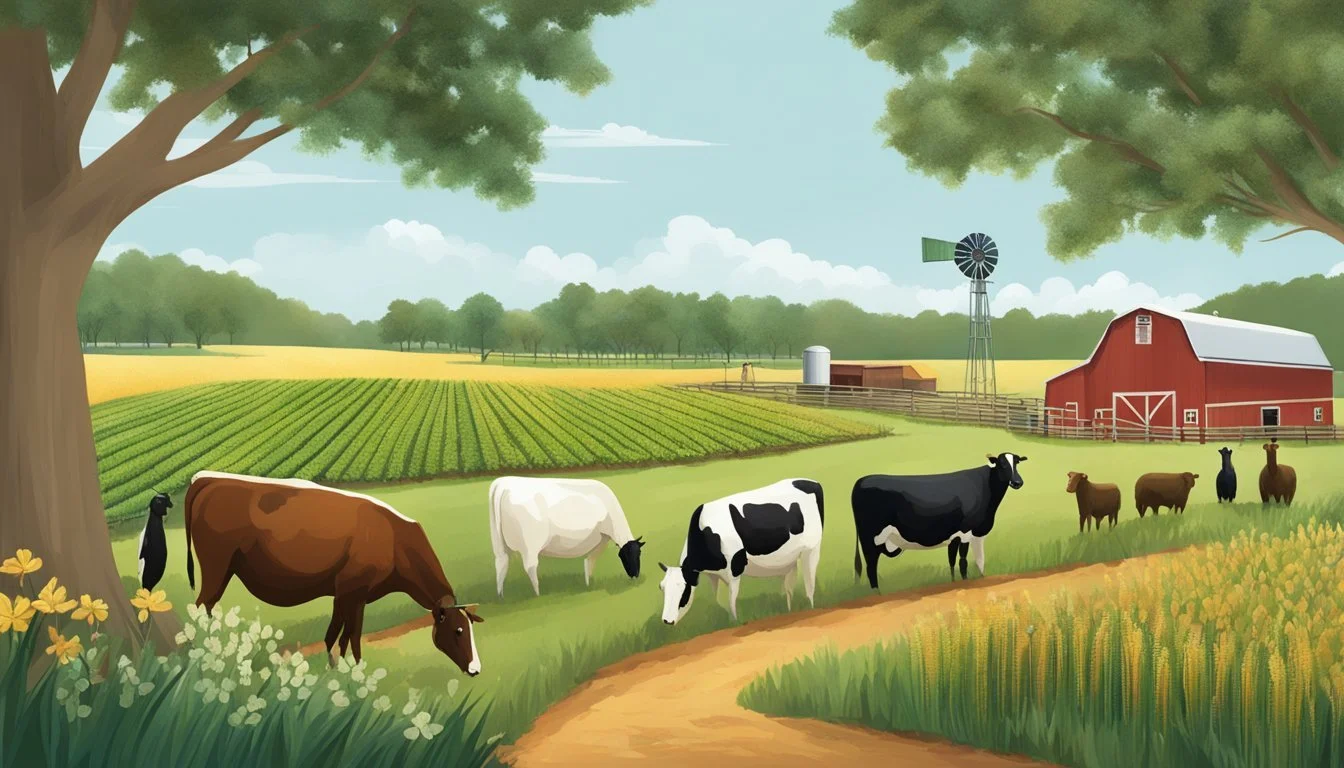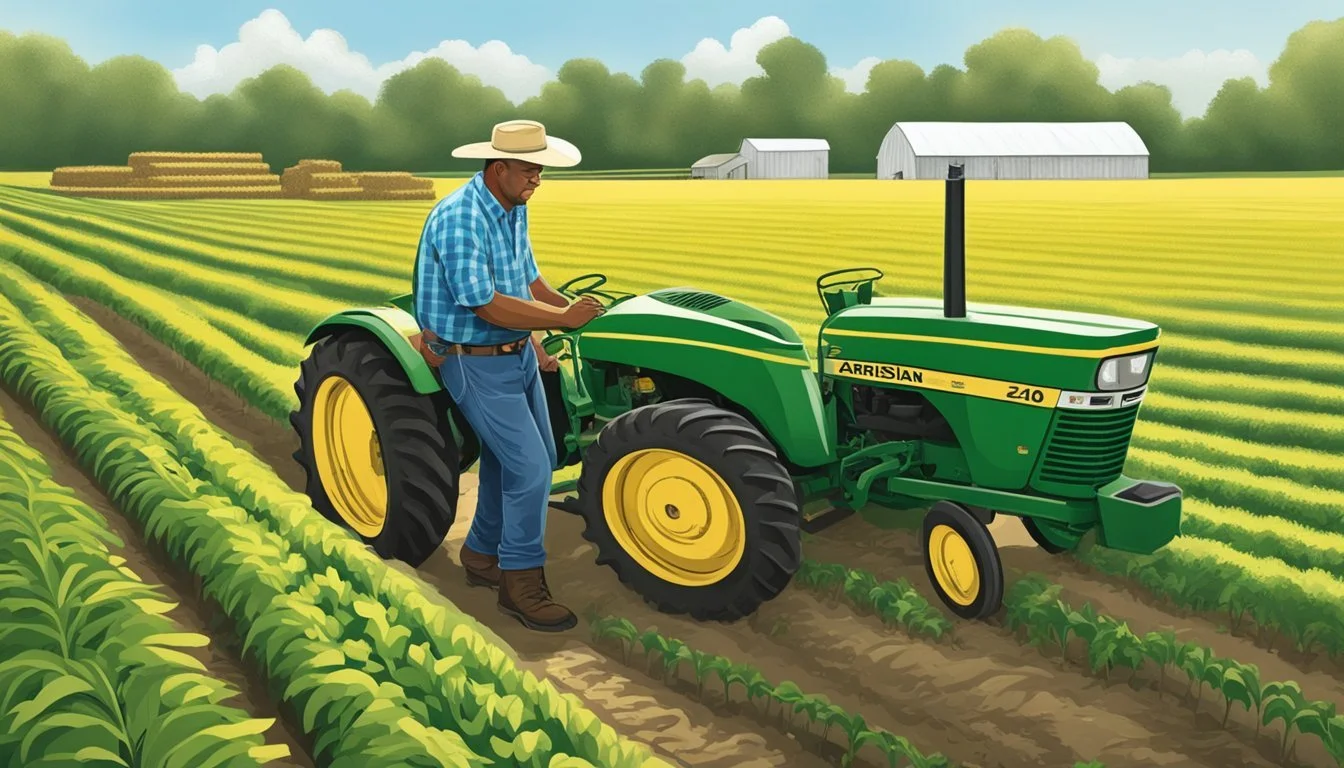Farming Grants Louisiana
Accessing Financial Aid for Agriculture
Louisiana offers a variety of grants and funding opportunities designed to support its agricultural sector. These aids are pivotal for farmers, agribusinesses, and local communities aiming to improve competitiveness, enhance food systems infrastructure, and recover from economic distress. The Louisiana Department of Agriculture and Forestry, for instance, provides grants and assistance encompassing areas such as farming, firefighting, forestry, and business recovery. Newly established programs also exist to reinforce the state's food supply chain and to support specialty crop production, thus emphasizing the state's commitment to strengthening its agricultural foundations.
Federal involvement in Louisiana's agriculture through the USDA Farm Service Agency avails funds for direct farm ownership loans, with particular allocations for beginning farmers and underserved groups. The State collaborates with various federal and local entities to develop comprehensive grant and loan programs tailored to meet the specific needs of the agricultural community. Furthermore, Louisiana invests in value-added agricultural enterprises, offering producer grants designed to encourage farmers to diversify and innovate, ultimately fortifying the economic viability of their operations.
The combined effort of state and federal programs symbolizes a strategic approach to cultivating a thriving agricultural environment in Louisiana. These programs underscore the recognition of agriculture as a critical component of the state's economy and the importance of providing targeted support to enhance this sector's growth and sustainability. As deadlines approach, potential applicants are encouraged to consider the range of available resources and how these might serve their projects and initiatives.
Understanding Farming Grants in Louisiana
Farming grants in Louisiana provide financial assistance to individuals and institutions involved in agriculture, supporting a range of activities from infrastructural development to marketing of specialty crops. These grants aim at bolstering the state’s food supply chain, enhancing the competitiveness of local producers, and fostering the growth of sustainable agricultural practices.
Key Granting Agencies
The Louisiana Department of Agriculture and Forestry (LDAF) plays a pivotal role in administering grants for agricultural and forestry initiatives. Another significant entity is the USDA Farm Service Agency, which offers funding opportunities tailored for Louisiana's farming community. Both agencies focus on the development and support of agricultural activities within the state, with a strong emphasis on assisting underserved and beginning farmers.
Types of Grants Available
Infrastructure Grants: These grants aim to strengthen Louisiana’s food supply chain and support the construction and improvement of essential infrastructure.
Specialty Crop Grants: To improve the competitiveness of specialty crops, funding is available for producers engaging in innovative practices.
Value-Added Producer Grants: Offered by agencies like Rural Development, these grants help producers create new products, expand markets, and increase income.
Grants are offered on a competitive basis, ensuring that funds are allocated to projects that demonstrate potential for significant impact.
Eligibility Criteria for Applicants
Eligibility for farming grants is often specific to the individual program but generally includes:
Beginning Farmers and Ranchers: Individuals who are new to farming may receive priority to encourage entry into the agricultural sector.
Underserved Applicants: Grants aim to serve a broad array of applicants, including minority groups, tribes, and family-owned farms.
Organic Farmers and Conservation Efforts: Those engaged in organic farming practices or conservation efforts are often eligible, highlighting an investment in sustainable agriculture.
Eligibility details must be verified with the respective grant program to ensure compliance and improve the likelihood of successful applications.
Institutions such as schools may also find opportunities for funding in agriculture-related educational programs. Overall, these grants serve to empower Louisiana's agricultural community and promote resilience and growth within the sector.
Application Process for Farming Grants
Navigating the application process for farming grants in Louisiana involves several steps, from identifying appropriate grant programs to meticulous follow-up post-submission. Applicants should prepare for a detailed process involving clear requirements and deadlines.
Finding Relevant Grants
One begins by researching and selecting grants that align with their farming activities. The Louisiana Department of Agriculture and Forestry provides a list of grant opportunities designed to fortify the state's food supply chain, while funding also exists in specialized programs like Specialty Crop Grant Programs and the Farmers Market Nutrition Programs. It’s essential to use resources like GrantWatch to identify the relevant 47 farming and agriculture grants available in Louisiana.
Application Requirements
Applications demand specific eligibility criteria and documentation:
Complete contact information is mandatory.
Plans for project implementation should be detailed and robust.
Applicants may need to provide evidence of grant training or capacity to deliver the grant objectives.
Checklists provided by the grantor should be adhered to meticulously.
Familiarize oneself with the options for funding, understanding the scope and limitations.
Grant Writing Tips
Grant proposals should be clear and compelling:
Use the grantor’s language to tailor the application to their priorities.
Emphasize how the project will impact the Louisiana agriculture sector.
Provide solid data and clear metrics for evaluating success.
Ensure readability with succinct, jargon-free language.
Submission and Follow-up
After submission, applicants must:
Keep record of all submission dates and documents.
Be responsive to any follow-up queries.
Contact info for grant administrators should be kept handy for any communications.
Applicants should note the importance of adherence to submission deadlines, as late applications are typically not considered.
Specific Grant Programs and Opportunities
In Louisiana, various grant programs provide funding to support farming practices, ecological conservation, and research development. These programs are designed to bolster the state's agricultural sector, emphasizing sustainability, growth, and innovation.
Conservation and Environment Grants
Conservation Reserve Program (CRP): Farmers can receive payments for converting environmentally sensitive land into conservation reserves.
Conservation Reserve Enhancement Program (CREP): An offshoot of CRP, offering additional benefits for targeted conservation efforts on agricultural lands.
Production and Marketing Grants
Value-Added Producer Grant (VAPG): Financial support for marketing and business plans for value-added products.
Dairy Margin Coverage Program: Aids dairy producers by payments that cover the gap between the milk price and the average feed cost.
Emergency Conservation Program (ECP): Provides funding for farmers to rehabilitate farmland damaged by natural disasters.
Livestock Indemnity Program (LIP): Compensates ranchers at a rate of 75% of market value for livestock mortality caused by adverse weather.
Livestock Forage Disaster Program (LFP): Offers payments to eligible livestock producers who have suffered grazing losses.
Research and Development Grants
Specialty Crop Block Grant Program: Promotes research and development for enhancing the competitiveness of specialty crops.
Research funding opportunities: Not explicitly mentioned but inferred presence for initiatives in agricultural development and resilience.
Education and Community Grants
Education grants: Funding for projects that engage in agricultural education, though specific programs are not detailed in the provided search results.
Community grant programs: Financial assistance for community-driven agricultural projects focused on food systems infrastructure and fair trade practices.
Financial Aid and Emergency Assistance
Farming in Louisiana can be fraught with uncertainties, from natural disasters to market fluctuations. Farmers in the state have access to a variety of financial aid and emergency assistance programs to help them weather such challenges. These programs are designed to offer both immediate relief and long-term stability, with a focus on recovery, sustainability, and risk management.
Disaster Recovery and Emergency Programs
Emergency Assistance: The U.S. Department of Agriculture (USDA) administers several emergency assistance programs for farmers affected by natural disasters. One key initiative is the Emergency Assistance for Livestock, Honeybees, and Farm-Raised Fish Program (ELAP), which offers financial aid to eligible producers of livestock, honeybees, and farm-raised fish for losses due to disease, certain adverse weather events, or loss conditions, including blizzards and wildfires.
Eligibility: Affected producers in Louisiana.
Assistance Type: Compensation for feed and grazing losses.
Disaster Relief: Louisiana’s Department of Agriculture and Forestry provides resources for disaster recovery specific to the state's needs. Financial support and other forms of aid are available to assist with farming, firefighting, forestry, and business recovery following significant emergency events.
Contact Information: Producers can call (225) 922-1234 for assistance.
Loans and Insurance Programs
Loans: The USDA's Farm Service Agency (FSA) offers loans to farmers, with programs tailored for both established and beginning farmers. The maximum loan amount can reach up to $600,000, with a portion of direct farm ownership loan funds reserved for beginning farmers and underserved applicants, as mandated by the Consolidated Farm and Rural Development Act.
Directed Focus: Supports the growth and establishment of new and minority farmers.
Insurance: Through the Risk Management Agency (RMA), the USDA provides a range of risk management and insurance tools designed to help farmers protect their investments. The programs under this agency support farmers in managing revenue losses and operating under uncertain market conditions.
Tools Provided: Crop insurance and other risk management strategies.
Farmers in Louisiana aiming to safeguard their livelihoods against unforeseen events and financial risks are encouraged to explore these programs and seek guidance from the specified agencies for specific application requirements and deadlines.
Maximizing Grant Benefits
Strategic Planning for Grant Usage
When applying for farming grants in Louisiana, strategic planning is central to maximizing grant benefits. Successful applicants prioritize elements such as competitiveness, distribution, and enhancing the food supply chain. They also consider how the grant can support access to markets and infrastructure improvements.
Identify Key Objectives: They define clear objectives that align with grant purposes, such as strengthening distribution channels or enhancing sustainable agricultural practices.
Allocate Funds Strategically: Funds are allocated to areas where they will have the most impact, for example, upgrading storage facilities to reduce post-harvest losses, thereby improving competitiveness.
Ensuring Compliance and Reporting
To maintain eligibility and ensure the continuation of grant benefits, recipients must adhere to all compliance guidelines and reporting requirements set forth by the granting body.
Adhere to Guidelines: This ensures that the funded activities align with the objectives of programs like the Resilient Food Systems Infrastructure Program (RFSI) and the Specialty Crop Grant Programs.
Regular Reporting: Grant recipients must submit regular reports that document how funds are used, the progress made, and how the grant contributes to business recovery and sustainable agriculture objectives.
Proper reporting and compliance not only secure the current funding but also establish credibility for future funding opportunities under various cooperative agreements.
Specialized Support and Funding for Diverse Agriculture
Louisiana agriculture benefits from a variety of tailored programs focused on promoting specialty crops, along with support aimed at expanding opportunities for minority and women farmers as well as fostering organic and regenerative farming practices.
Support for Specialty and Niche Crops
Louisiana's dedication to specialty and niche crops such as fruits, vegetables, rice, nursery crops, floriculture, and horticulture is evident through targeted funding programs. The Specialty Crop Block Grant Program (SCBGP) enables the state's producers to enhance competitiveness through promotion, research, and pest and disease control strategies. Support also extends to market development, ensuring that the state's diverse agricultural outputs reach suitable markets efficiently.
Notable Grants Available:
Resilient Food Systems Infrastructure New grant
Specialty Crop Block Grant Program
Funding for Minority and Women Farmers
Supporting minority and women farmers is central to ensuring a diverse and inclusive agricultural sector. Louisiana offers grants and programs that focus on overcoming the barriers these groups may face. By directing resources towards educational programs, technical assistance, and economic incentives, the state fosters an environment where diversity in farming communities thrives.
Key Initiatives:
Business recovery assistance
Educational outreach and technical support
Grants for Organic and Regenerative Farming
Louisiana is proactive in advancing organic and regenerative farming methods to promote sustainability and food safety. Financial assistance and educational resources are aimed at encouraging farming practices that restore soil health, conserve biodiversity, and reduce the environmental impact. Grant programs are available to support farmers in transitioning to these practices, contributing to the state's overall goal of a resilient and sustainable food system.
Focus Areas:
Soil health enhancement
Reduction of environmental farming impact
Support for transitioning to organic practices
Additional Resources and Support
Farmers in Louisiana have access to a robust support network designed to promote agricultural success and sustainability. This network offers educational workshops, opportunities for networking with industry specialists, and varied resources both local and online.
Educational Workshops and Seminars
Farmers can enhance their expertise by attending educational workshops and seminars. These events focus on the latest farming techniques, optimal uses of fertilizer, and cost-effective feed strategies. They also cover niche topics relevant to Louisiana, such as cotton production or poultry farming. These workshops often present information on how to better leverage resources like community gardens and explore cost-sharing initiatives to reduce expenses on infrastructure, like housing and storage construction.
Networking With Other Farmers and Grant Specialists
Building connections with other farmers and grant specialists is imperative. Networking enables farmers to share knowledge about best practices and learn about grant opportunities directly from experts. Such interactions may lead to joint ventures or collective bargaining, which could result in better prices for essentials like feed and fertilizer, and shared use of equipment for lamp (livestock and market projects), housing, and storage facilities.
Utilizing Local and Online Resources
Farmers should actively seek out local and online resources that provide detailed information on grants and funding. Resources might include state agricultural department websites, where they can find specifics on programs like the Value-Added Producer Grant (VAPG), which supports the development of value-added products. Utilizing online platforms to understand the nuances of grants related to cost share, community gardens, and lamp initiatives can significantly facilitate their construction, storage, and overall farm development projects.







